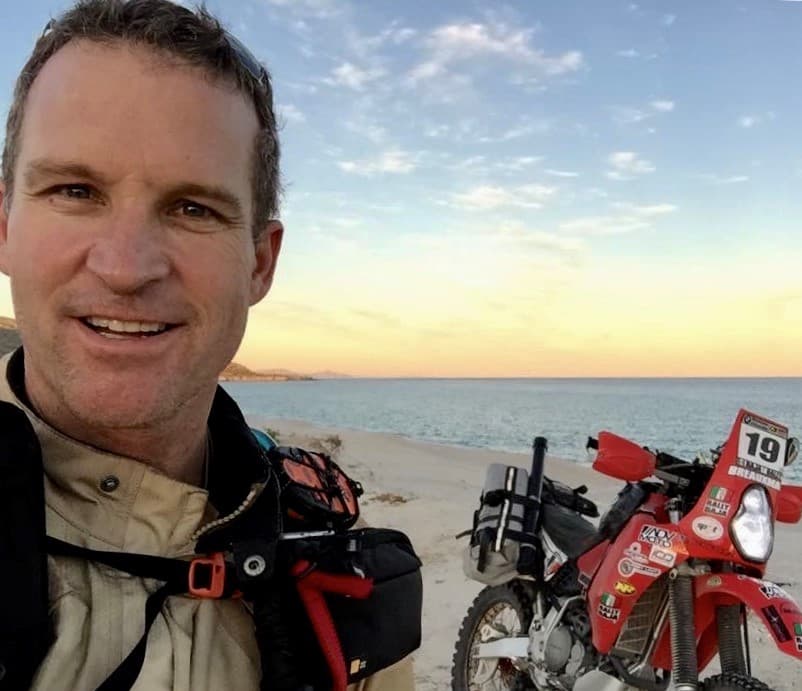 “For many of us it’s a question of when, not if”, explains SPOT Ambassador Scotty Breauxman as he recounts his near death experience from riding in a remote canyon in Baja California, Mexico, “If you forget your electrolytes, you better have your SPOT configured properly because water becomes obsolete with essential minerals in the system.”
“For many of us it’s a question of when, not if”, explains SPOT Ambassador Scotty Breauxman as he recounts his near death experience from riding in a remote canyon in Baja California, Mexico, “If you forget your electrolytes, you better have your SPOT configured properly because water becomes obsolete with essential minerals in the system.”Everything was normal like countless other days working in the outback of the Baja Peninsula except one thing was missing on this day: essential minerals. Namely sodium, magnesium, calcium, and potassium. Without enough of these minerals in your body, water won’t absorb into your system and your organs start the process of slowing down - eventually you go into shock.
Two hours before sunset, after a long ride through the Peninsula, and steadily becoming weak and disoriented, I told the cowboy I was with that I was done. I was unable to ride, walk or stand. I laid down on some rocks and pushed the HELP button on my SPOT Gen3, skipping the SOS button in favor of my ‘custom cavalry’ network positioned within 30 miles and following my live tracking. I reached for the satellite phone stashed on my vest, auto dialed my partner who was just receiving my HELP message and handed the phone to the cowboy. He spoke in Spanish, “Your buddy is in grave condition and you need to get him out of here right away.”
“Copy that”, they answered, “we can see where you are and know how to get into that canyon. We’re on the way.”
The cowboy helped me into a thermal, survival blanket and used the half-full bladder from my hydro pack as my pillow. I asked for my goggles, a tree branch for a stick and I reached for the whistle in my vest.
“Should I stay with you or leave you here and hike down the canyon to look for your friends?” he asked.
“You have to go”, I told him, “and take my GPS unit. You need to guide them back here so leave it powered on.” He was hesitant to go and before he left me.
The goggles, stick and whistle are precautions. If the rescue fails and they can’t find me, the vultures will and the first thing on their menu are the eyeballs. I was thinking of my friends and tightened the googles around my face. The whistle was to rile and fend off any curious coyotes when they came. The stick might be the last defense if things got primal.
I had my phone on airplane mode as usual in the bush and made a few audio recordings for my family and trustee. “This was an accident”, I pleaded as I said my peace and gave some logical instructions. I was hallucinating for these hours alone before I heard my name echoing through the canyon. I blew into the whistle occasionally to guide them in, not exerting too much energy. When my normal riding partner and the 2 others arrived, they treated me with electrolytes, carried my gear and helped me hike down the canyon back to a waiting SUV.
It was as close to dying as I’ve ever come and I’m sure I wouldn’t have made it through the night. SPOT saved my life that day.
Scotty Breauxman has spent 15 years riding his motorcycles, mostly solo, in Baja California, Mexico in his role as the course designer for the Baja Rally, a competitive off-road race he founded in 2013. He trains SPOT users on proper configuration and is adamant about riders keeping their SPOT devices attached to their body within easy reach of either hand.